
To have a lush green lawn you have to be committed to caring for it. The care that your lawn needs varies from season to season, and you also have to take into account the type of grass that is growing in your yard. Some people use chemicals for their lawns but if not done properly they can harm the environment and possibly even you.
Bermuda grass is one of the most common grasses used in American lawns. It is rugged, versatile, and easy to care for. But the main problem for most people is that they do not know how to properly take care of their Bermuda grass. It can be invasive, so it is essential to understand how to care for your Bermuda grass and keep it under control.
However, you can do a few things to ensure your Bermuda grass stays healthy and looks good. Here are ten care tips for your Bermuda grass lawn.Bermuda Grass Lawn Care Tips
If you are considering doing organic lawn care here are some helpful tips for a healthy lawn.
Get to know your soil
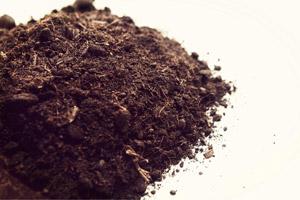
A gardener needs to know about the soil and soil conditions he has in his garden because soil helps provide the perfect grass growth base. Before starting the seeding process, it is vital to take a soil test.
A soil test will help you know the soil condition and nutrient levels in the soil, such as soil pH, potassium phosphorus, and nitrogen levels.
You can either test the soil yourself using effective self-tests in the market or contact your local county extension office. They can help you get information about test kits and some lawn and garden laboratories with trained soil specialists on staff.
You can also take accurate soil samples yourself from problematic areas of your lawn, such as any area exposed or has unwanted lawn mosses. Tell the lab that you're testing areas of your yard, and they can help you by giving some advice on how you can improve your lawn.
01. Correct any underground issues
When you get the test results and you know the problems, it's time to fix them. Balancing out and improving your soil using soil amendments and fertilizers recommended by the lab such as Lime (pulverized limestone) helps balance the soil's pH to support the grasses draw the nutrients they need from the soil. Start by fixing the severe and more troubled areas and then resolving any bare lawn patches.
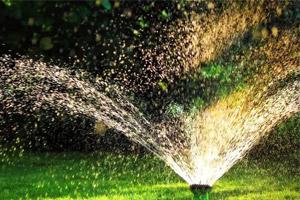
02. Water Lawn in the Morning
Bermuda grass needs about 1 inch of water per week, so water it profoundly and evenly every 4 to 5 days. But be careful not to overwater, as this can harm your grass. These grasses are susceptible to fungal diseases if left wet overnight. So, if you're unsure how much to water, it's better to go on the side of too little rather than too much.
Early morning is the best time to water as it gives the soil time to absorb and store moisture. If possible, water during the cool of the early morning to avoid evaporation. Using an oscillating sprinkler to spray your lawn for 15 minutes or so is better than using a hose. The sprinklers will put out just enough water to take care of evaporation, wind drift, and runoff.
Watering in the morning also reduces the chance of fungal diseases and bacterial blasts because it allows the leaves to dry out during the day.
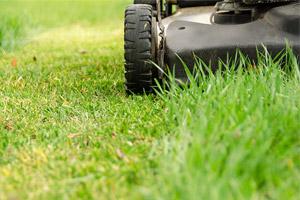
03. Regular Mowing
The ideal height for Bermuda grass is between 1 and 2 inches.
Mowing your Bermuda Grass regularly is important to keep the grass healthy. Mow often enough that your grass blades never reach more than a third of the way down the stem. If you cut too low and damage the crown, it can be difficult for the plant to recover, especially in the summer heat.
Do not mow until new growth has come in; then mow only the top third of your lawn. Two to three inches is optimal, but not always practical with most lawnmowers. The longer this amount of grass blade is left on the plant, the more leaf area it has for photosynthesis as well as storage capacity for carbohydrates and other nutrients.
Mowing your lawn will not only keep it looking neat but also stimulate growth.
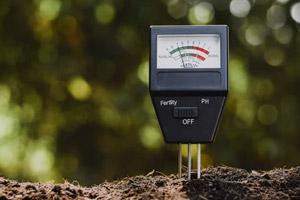
04. Proper pH and Nutrient Balance
It's important to have the proper pH and nutrient balance for your lawn. If these are not within a certain range, then plants can be damaged or killed. Make sure that you know what type of soil you have and what kinds of lawn grasses you will be planting before adding any fertilizers to your garden area.
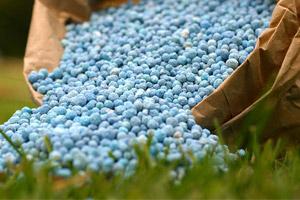
05. Using Fertilizers
Bermuda grass is a heavy feeder, so it needs to be fertilized twice a year. The best time to fertilize your Bermuda grass is early spring and late fall. If you do this, your grass will be green and healthy all year. Besides this, you should also make sure to fertilize after you mow your lawn. This will help the grass recover quickly and stay healthy.
Too much nitrogen will cause the grass to grow too quickly and become thin, weak, and pale green. The leaves can fall off easily as well because the plant puts all of its energy into producing new foliage at the expense of flowers or fruit.
It's also important to fertilize your lawn in the correct way. Avoid large clumps of fertilizer scattered all over your lawn, as they are likely to burn the plants regardless of what kind you use.
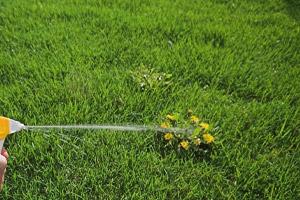
06. Using Weed killers
Weeds are the enemy of any lawn, but they can be especially troublesome in Bermuda grass. But don't worry; you can do a few things to control the weeds in your Bermuda grass lawn.
- First, make sure you mow your lawn regularly. With this, you can prevent weeds from taking hold.
- Second, use herbicides carefully. Many herbicides will kill Bermuda grass and weeds, so it is essential to read the labels carefully and follow the directions.
- Third, consider using a mulching mower. It can quickly chop up the weeds and prevent them from taking root.
- Fourth, make sure you fertilize your lawn regularly. This will help make the grass more robust and resistant to weeds.
- Finally, consider using a weed-control fabric. It prevents weeds from taking root in your lawn.
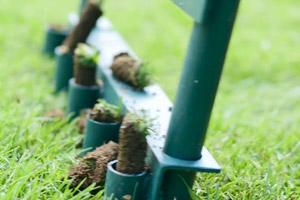
07. Aerating Lawn
Aerating your lawn is important to allow water, fertilizer, and other materials to be absorbed more easily into the soil. Aerators remove plugs of soil from the ground, allowing air to reach the root zone. Be careful when using aerators around established plants because they tend to pack the soil down more tightly.
As you are considering these tips, remember that an ounce of prevention is worth a pound of cure when it comes to having a healthy lawn.
08. Remove debris frequently:
Debris, like dead leaves and twigs, can damage your Bermuda grass if left unattended. Be sure to remove them regularly to keep your grass healthy. If you don't remove debris, it can lead to brown patches and make your grass more susceptible to disease. However, if you do remove debris, it will help your Bermuda grass look its best. So, make sure to keep your grass clean and free of debris.
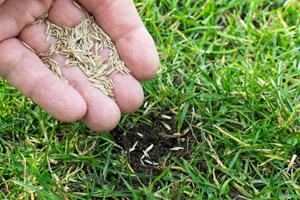
09. Grass Customization
Mixing different types of grass together in areas where the lawn is not well-maintained will help to produce a fast-repairing turf. If you mix Kentucky bluegrass, fine fescue, and perennial ryegrass together, it creates a lawn that has good disease resistance and is better able to withstand periods of drought.
The drawback to mixing different grasses together is that it can often lead to tufting, which is when the blades clump together and create rough spots in your lawn. A gradual mix of different soils will help to reduce this problem.
10. Reseed Thin Areas of the Lawn
If you have bare spots in your lawn or thin grass, you may want to re-seed the area with a mix of new seed and old soil. Raking up leaves from last year's fall will help to expose any areas of thin turf that need to be reseeded.
11. Keep pests at bay with appropriate pesticides:
Pests can quickly ruin a healthy lawn. To keep them at bay, you need to use the appropriate pesticides. Many different types of pesticides are available, so be sure to read the label carefully and choose one specifically designed for Bermuda grass. Besides this, you should also get your lawn professionally treated for pests every few months.
12. Rake leaves in autumn instead of using a leaf blower:
Leaf blowers can damage Bermuda grass, so it's best to rake leaves by hand. This will also help to prevent thatch from building up. However, if you must use a leaf blower, set it to the lowest. In this way, you will avoid damaging the grass blades. So, remember to rake your leaves in autumn and avoid using leaf blowers as much as possible
Conclusion:
Bermuda grass is versatile and easy-to-care-for lawn grass. However, you should keep a few things in mind to maintain a healthy lawn. All the tips for caring for the Bermuda grass are given above, so follow them. By following these tips, you will have a beautiful and healthy Bermuda grass lawn in no time.

